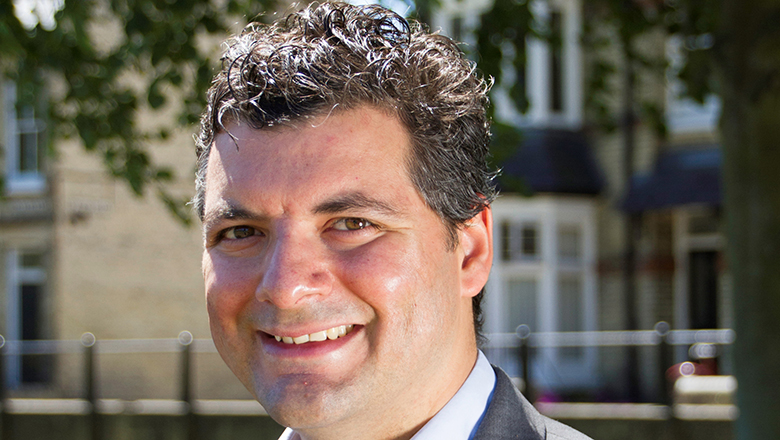The current conflict in Ukraine has revealed the extraordinary failure of the UN Security Council to live up to its primary responsibility to maintain international peace and security.
By City Press Office (City Press Office), Published
By Dr Aldo Zammit Borda, Reader in Law in The City Law School
(The article below is an expanded version of my letter published in The Observer on 27th February 2022, available at this weblink.)
 Russia’s aggression against Ukraine exposes the extraordinary failure of the UN Security Council to live up to its primary responsibility to maintain international peace and security. When, in 1990, Iraq invaded Kuwait, the Security Council was swift to act and adopt resolution 678, which authorised the use of “all necessary means” to halt that aggression and restore peace. The USSR representative at the time stated that “those who had breached the peace should know that all necessary means would indeed inexorably be used against them”.
Russia’s aggression against Ukraine exposes the extraordinary failure of the UN Security Council to live up to its primary responsibility to maintain international peace and security. When, in 1990, Iraq invaded Kuwait, the Security Council was swift to act and adopt resolution 678, which authorised the use of “all necessary means” to halt that aggression and restore peace. The USSR representative at the time stated that “those who had breached the peace should know that all necessary means would indeed inexorably be used against them”.
Of course, the situation is different today. The peace was broken by one of the permanent members of the Security Council, who are able to abuse their privileges and treat this body with disdain. Indeed, as reported in the Guardian (Moment that Putin thundered to war, drowning out last entreaties for peace, published on 24th February 2022), Vladimir Putin announced the start of Russia’s “special military operation” while an emergency session of the Security Council was under way.
In the run up to this “operation” and in its early days, there was a palpable sense of resignation on the part of the other permanent members of the Security Council that Ukraine would fall into Russian hands. The sense was that maintaining international peace and security appeared to require, in this case, an allowance for Russia to occupy Ukraine – even though this was in flagrant breach of international law. The sanctions that were being considered at that stage, mainly by Western states, were relatively weak and ineffective (e.g. asset freezes and travel bans). They would not have had any immediate influence on the outcome of the conflict.
However, as the invasion progressed and the world witnessed Ukrainian nationals fighting back valiantly and managing to resist occupation, Ukraine won the battle for hearts and minds. Russia’s continued aggression rallied Western states, who agreed an unprecedented and far-reaching package of support (financial, military and humanitarian) together with a series of hard-hitting official and unofficial sanctions.
In many ways, the Ukraine conflict has come to mark a watershed moment in international relations in the face of Russia’s aggression. It has led the European Union, for instance, for the first time ever, to finance the purchase and delivery of weapons and other equipment to a country under attack. It has also resulted in Germany not only reversing its long-standing ban on delivery of lethal weapons internationally, but also to significantly increase its military spending. In his speech in the German Bundestag, the German Chancellor described Russia’s invasion of Ukraine as “a turning point in the history of our Continent.”
Could this and should this also be a turning point for the UN Security Council?
Over the years, several proposals to reform this organ have been made but, so far, have been allowed to gather dust. Perhaps Ukraine’s experience could serve to rally the other permanent members of the UN Security Council in order to seriously reconsider their stance on this question. It remains to be seen, therefore, whether Russia’s aggression will serve to open a window of opportunity towards some level of reform that would enable the UN Security Council to live up to its primary responsibility to maintain international peace and security?
